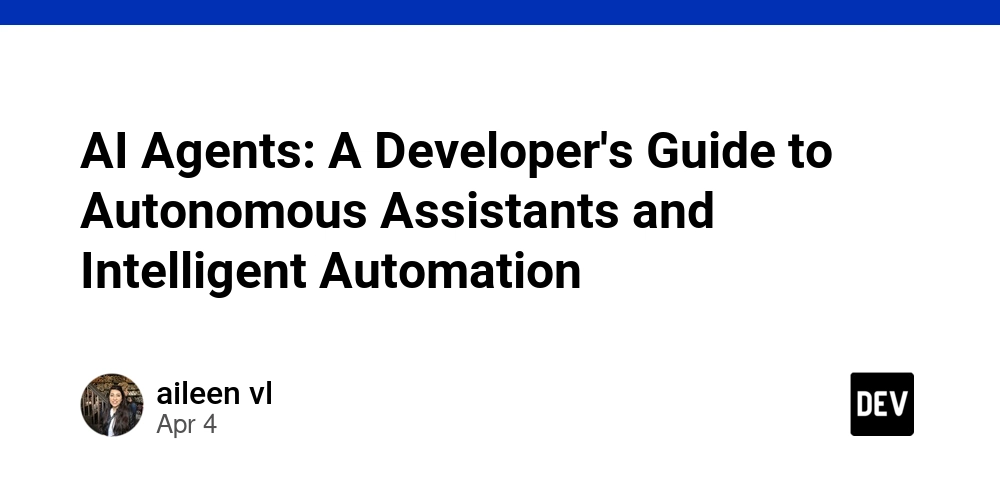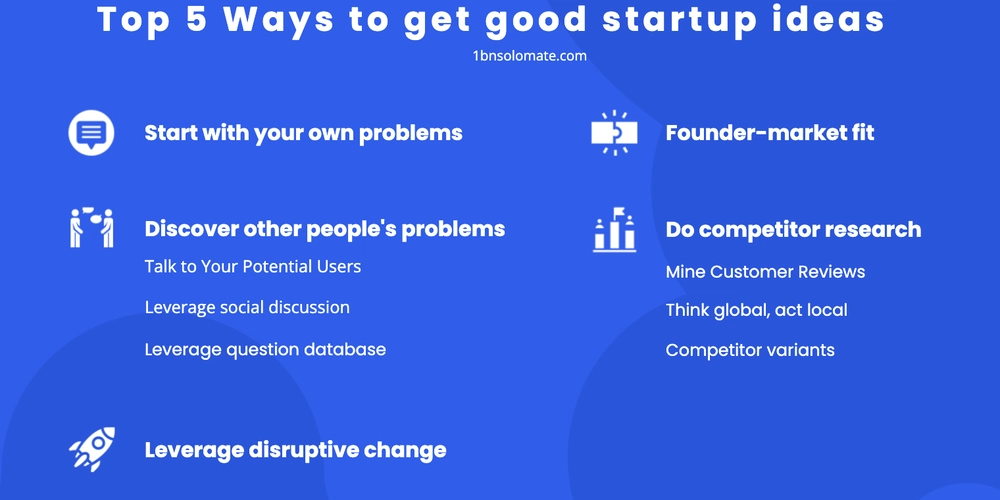AI Agents: A Developer's Guide to Autonomous Assistants and Intelligent Automation
AI Agents: Your Guide to Autonomous Assistants and Intelligent Automation The rise of artificial intelligence is no longer a futuristic fantasy but a present-day reality transforming industries across the globe. In fact, a recent study by Gartner projects that AI augmentation will generate $2.9 trillion in business value by 2024. At the forefront of this revolution are AI agents, sophisticated systems designed to perform tasks autonomously and intelligently. This article provides a comprehensive overview of AI agents, their applications, and how businesses can leverage them to unlock unprecedented levels of efficiency and innovation. What are AI Agents? (Defining the Basics) AI agents, also known as artificial intelligence agents or autonomous agents, are computational entities that can perceive their environment, reason, learn, and act autonomously to achieve specific goals. They possess key properties that set them apart from traditional software programs. These include autonomy, the ability to operate independently without constant human intervention; intelligence, the capacity to learn, reason, and solve problems; a goal-oriented design, focused on achieving specific objectives; and interactivity, the capability to perceive and interact with their environment. There are several types of intelligent agents, each with varying levels of complexity and capabilities. Simple reflex agents react to immediate stimuli based on predefined rules. Model-based reflex agents maintain an internal model of the world to make decisions. Goal-based agents strive to achieve specific goals by planning and taking actions. Utility-based agents optimize their actions to maximize a utility function, a measure of satisfaction. Finally, learning agents improve their performance over time through experience. Each type plays a unique role in different applications, allowing for tailored solutions to specific problems. The Rise of AI Agents: Trends and Key Developments Several key trends are driving the rapid adoption of AI agents. Advancements in AI and machine learning algorithms provide the foundation for more sophisticated and capable agents. The increasing availability of data fuels the training and improvement of these agents. Growing demand for AI automation in various industries is pushing businesses to explore and implement AI solutions. The need for personalized experiences is also a major driver, as AI agents can tailor interactions and services to individual user preferences. The integration of generative AI is significantly enhancing AI agent capabilities. Generative AI models enable AI agents to create content, automate creative tasks, and personalize user experiences in unprecedented ways. Furthermore, the seamless integration of AI agents with other technologies like cloud computing and the Internet of Things (IoT) expands their reach and potential applications. For example, edge AI agents are being deployed on edge devices for real-time processing and reduced latency. AI Agent Applications Across Industries: Real-World Examples AI agents are transforming industries by streamlining processes, improving decision-making, and enhancing customer experiences. In customer service, AI assistants like chatbots provide instant support and resolve common issues, freeing up human agents to handle more complex inquiries. In healthcare, AI agents assist with diagnosis, drug discovery, and personalized treatment plans, improving patient outcomes. The benefits of using AI agents for customer service are particularly noticeable in reduced wait times and 24/7 availability. The financial sector utilizes AI agents for fraud detection, algorithmic trading, and risk management, safeguarding assets and optimizing investment strategies. Manufacturing leverages autonomous systems for process optimization, predictive maintenance, and quality control, increasing efficiency and reducing downtime. Retailers use AI agents for personalized recommendations, inventory management, and supply chain optimization, enhancing customer satisfaction and streamlining operations. These are just a few examples of how AI agent examples are making a real-world impact. Building and Implementing AI Agents: A Practical Guide Building and implementing AI agents involves several key steps. First, it's crucial to define clear goals and objectives for the agent. Next, you need to select the right AI agent platform or framework, considering factors like scalability, ease of use, and integration capabilities. Gathering and preparing high-quality data is essential for training the AI agent model. The model then needs to be trained and evaluated rigorously to ensure accuracy and reliability. Finally, the AI agent is deployed and continuously monitored to optimize its performance. Data quality and security are paramount throughout the entire process. It's crucial to implement robust data governance policies and

AI Agents: Your Guide to Autonomous Assistants and Intelligent Automation
The rise of artificial intelligence is no longer a futuristic fantasy but a present-day reality transforming industries across the globe. In fact, a recent study by Gartner projects that AI augmentation will generate $2.9 trillion in business value by 2024. At the forefront of this revolution are AI agents, sophisticated systems designed to perform tasks autonomously and intelligently. This article provides a comprehensive overview of AI agents, their applications, and how businesses can leverage them to unlock unprecedented levels of efficiency and innovation.
What are AI Agents? (Defining the Basics)
AI agents, also known as artificial intelligence agents or autonomous agents, are computational entities that can perceive their environment, reason, learn, and act autonomously to achieve specific goals. They possess key properties that set them apart from traditional software programs. These include autonomy, the ability to operate independently without constant human intervention; intelligence, the capacity to learn, reason, and solve problems; a goal-oriented design, focused on achieving specific objectives; and interactivity, the capability to perceive and interact with their environment.
There are several types of intelligent agents, each with varying levels of complexity and capabilities. Simple reflex agents react to immediate stimuli based on predefined rules. Model-based reflex agents maintain an internal model of the world to make decisions. Goal-based agents strive to achieve specific goals by planning and taking actions. Utility-based agents optimize their actions to maximize a utility function, a measure of satisfaction. Finally, learning agents improve their performance over time through experience. Each type plays a unique role in different applications, allowing for tailored solutions to specific problems.
The Rise of AI Agents: Trends and Key Developments
Several key trends are driving the rapid adoption of AI agents. Advancements in AI and machine learning algorithms provide the foundation for more sophisticated and capable agents. The increasing availability of data fuels the training and improvement of these agents. Growing demand for AI automation in various industries is pushing businesses to explore and implement AI solutions. The need for personalized experiences is also a major driver, as AI agents can tailor interactions and services to individual user preferences.
The integration of generative AI is significantly enhancing AI agent capabilities. Generative AI models enable AI agents to create content, automate creative tasks, and personalize user experiences in unprecedented ways. Furthermore, the seamless integration of AI agents with other technologies like cloud computing and the Internet of Things (IoT) expands their reach and potential applications. For example, edge AI agents are being deployed on edge devices for real-time processing and reduced latency.
AI Agent Applications Across Industries: Real-World Examples
AI agents are transforming industries by streamlining processes, improving decision-making, and enhancing customer experiences. In customer service, AI assistants like chatbots provide instant support and resolve common issues, freeing up human agents to handle more complex inquiries. In healthcare, AI agents assist with diagnosis, drug discovery, and personalized treatment plans, improving patient outcomes. The benefits of using AI agents for customer service are particularly noticeable in reduced wait times and 24/7 availability.
The financial sector utilizes AI agents for fraud detection, algorithmic trading, and risk management, safeguarding assets and optimizing investment strategies. Manufacturing leverages autonomous systems for process optimization, predictive maintenance, and quality control, increasing efficiency and reducing downtime. Retailers use AI agents for personalized recommendations, inventory management, and supply chain optimization, enhancing customer satisfaction and streamlining operations. These are just a few examples of how AI agent examples are making a real-world impact.
Building and Implementing AI Agents: A Practical Guide
Building and implementing AI agents involves several key steps. First, it's crucial to define clear goals and objectives for the agent. Next, you need to select the right AI agent platform or framework, considering factors like scalability, ease of use, and integration capabilities. Gathering and preparing high-quality data is essential for training the AI agent model. The model then needs to be trained and evaluated rigorously to ensure accuracy and reliability. Finally, the AI agent is deployed and continuously monitored to optimize its performance.
Data quality and security are paramount throughout the entire process. It's crucial to implement robust data governance policies and security measures to protect sensitive information. Ethical considerations and responsible AI development are also vital, ensuring that the AI agent operates fairly and without bias. Building and managing AI agents requires a diverse set of skills and expertise, including data science, software engineering, and domain knowledge. Platforms like AutoGen, CrewAI, and LangChain are emerging as popular choices for building custom AI agents.
Challenges and Considerations
While the potential of AI agents is immense, there are also challenges and considerations to address. Data privacy and security concerns are paramount, requiring robust measures to protect sensitive information. Ethical considerations and potential biases in AI algorithms must be carefully addressed to ensure fairness and prevent discrimination. The lack of transparency and explainability in some AI models can make it difficult to understand their decision-making processes.
Integration complexities can also pose challenges, requiring careful planning and execution. The cost of development and deployment can be significant, particularly for complex AI agent systems. Responsible AI development and deployment are crucial, requiring adherence to ethical guidelines and best practices. Regulations and guidelines may be necessary to govern the use of AI agents and ensure their responsible application.
The Future of AI Agents: What to Expect
The future of AI agents is bright, with ongoing advancements promising even more sophisticated and capable systems. We can expect to see more autonomous agents that can operate independently and adapt to changing environments. Increased integration with other technologies like robotics, IoT, and cloud computing will further expand the capabilities and applications of AI agents. Wider adoption across industries will drive innovation and transform business processes.
New AI agent applications will emerge, addressing a wider range of challenges and opportunities. The potential impact of AI agents on society and the workforce is significant, requiring careful consideration and proactive planning. As AI agents become more prevalent, it's crucial to address ethical considerations, ensure responsible development, and mitigate potential risks.
Conclusion
AI agents are revolutionizing industries by providing AI automation and intelligent solutions to complex problems. From enhancing customer service to optimizing manufacturing processes, AI agents are driving efficiency, reducing costs, and improving decision-making. While challenges remain, the potential benefits of AI agents are undeniable. As the technology continues to evolve, businesses that embrace AI agents will be well-positioned to thrive in the future.
Ready to unlock the power of AI agents for your business? Contact us today for a free consultation and explore how our AI agent solutions can transform your operations.













































































































































































![[The AI Show Episode 142]: ChatGPT’s New Image Generator, Studio Ghibli Craze and Backlash, Gemini 2.5, OpenAI Academy, 4o Updates, Vibe Marketing & xAI Acquires X](https://www.marketingaiinstitute.com/hubfs/ep%20142%20cover.png)


























































































































![[FREE EBOOKS] The Kubernetes Bible, The Ultimate Linux Shell Scripting Guide & Four More Best Selling Titles](https://www.javacodegeeks.com/wp-content/uploads/2012/12/jcg-logo.jpg)



![From drop-out to software architect with Jason Lengstorf [Podcast #167]](https://cdn.hashnode.com/res/hashnode/image/upload/v1743796461357/f3d19cd7-e6f5-4d7c-8bfc-eb974bc8da68.png?#)






































































































.png?#)





.jpg?#)































_Christophe_Coat_Alamy.jpg?#)








































































































![Rapidus in Talks With Apple as It Accelerates Toward 2nm Chip Production [Report]](https://www.iclarified.com/images/news/96937/96937/96937-640.jpg)







































































































































